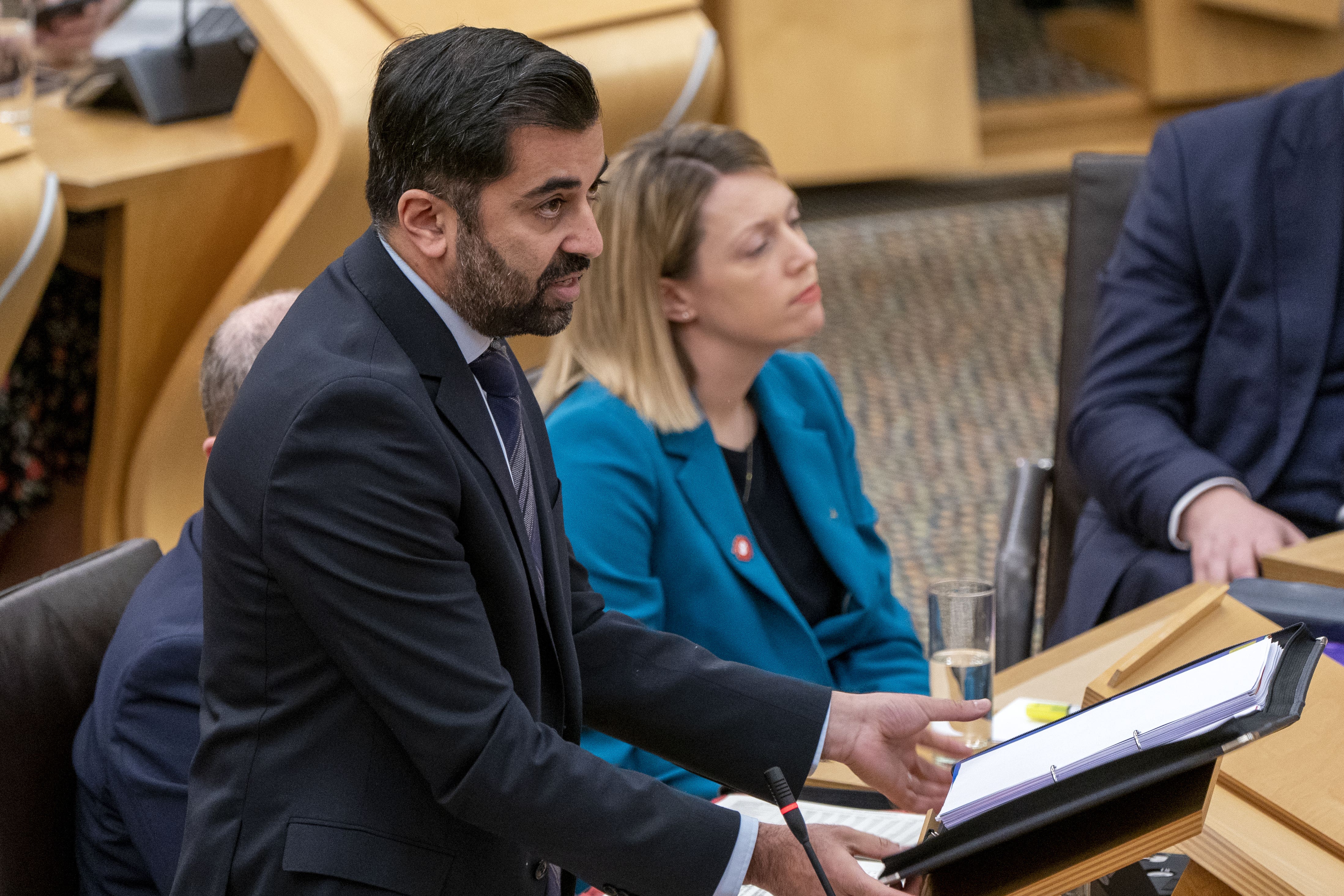No ‘mass exodus’ from Scotland over higher tax – Yousaf
The First Minister was branded ‘high tax Humza’ by Scottish Conservative leader Douglas Ross.

There has not been a “mass exodus” from Scotland caused by higher taxes, First Minister Humza Yousaf has said.
The Scottish Government’s tax and spending plans were released this week, which included a new tax rate for higher earners and an extra 1p in the pound on the top rate.
Forecasters believe the changes will bring in a further £1.5 billion next year, but opponents have raised concerns it could lead to people leaving Scotland altogether.
During First Minister’s Questions on Thursday, Scottish Conservative leader Douglas Ross said 1.5 million people in Scotland are currently paying more tax than in the rest of the UK.
He referred to the First Minister as “high tax Humza” – a moniker which resulted in a rebuke from the Presiding Officer.
Mr Ross asked if the First Minister believes it is “fair” the majority of Scots pay more in tax.
The Scottish Fiscal Commission said this week anyone earning more than £28,850 will pay more in income tax, with the figure being slightly above median earnings, but it is unclear if the majority of people in Scotland face higher taxes when other levies are taken into account.
Responding to Mr Ross, Mr Yousaf insisted the majority will pay less tax – “no ifs, no buts, no maybes about it”.
He added the Scottish Budget was “about values”, with his Government favouring taxing the highest 5% of earners more, compared to the UK Government’s preference of cutting taxes.
Mr Yousaf also criticised Mr Ross’s claims that a “mass exodus” will follow the increase in taxation.
“The statistics simply don’t bear that out,” the First Minister said.
“National Records of Scotland statistics from 2021 show that 56,000 people came to Scotland from the rest of the UK, a net-in migration of almost 10,000 people.”
Those who chose to come to Scotland, the First Minister said, did so because of the “social contract” on offer – including free prescriptions, tuition fees, childcare and personal care.
Mr Ross, who was quoting concerns from BMA Scotland chairman Dr Iain Kennedy, said the UK Government had provided the highest ever level of funding and “tight budgets are purely the SNP’s fault for wasting taxpayers’ money”.
The Tory leader said: “It would be funny if it wasn’t so serious.
“The wastage from this SNP Government on ferries that don’t float, on doomed court cases, on Ivy League degrees for water executives, before we even start on the bar bill.”
Mr Ross went on to push the First Minister on non-domestic rates relief, following the announcement of a freeze for the lowest valued businesses and 100% relief for hospitality businesses on Scotland’s islands.
The decision came despite pressure from the industry for more help, with Mr Ross saying it will put Scottish businesses “at a disadvantage”.
Mr Yousaf, however, said the Tory leader has “no credibility” on economic matters, and he stressed offering more business support and tax cuts would have resulted in less funding for public services.
Bookmark popover
Removed from bookmarks